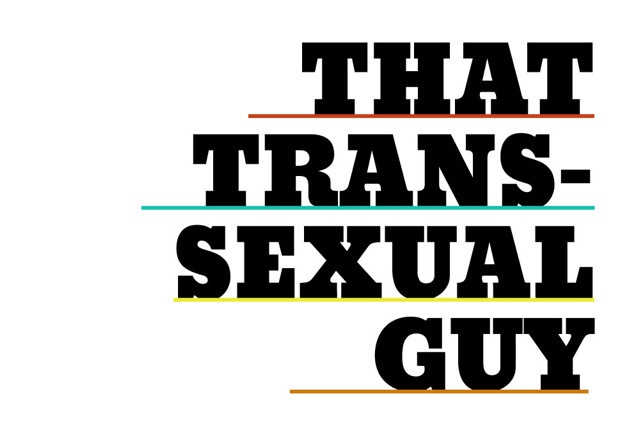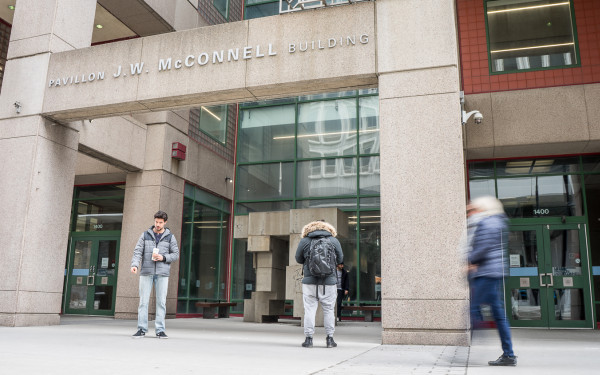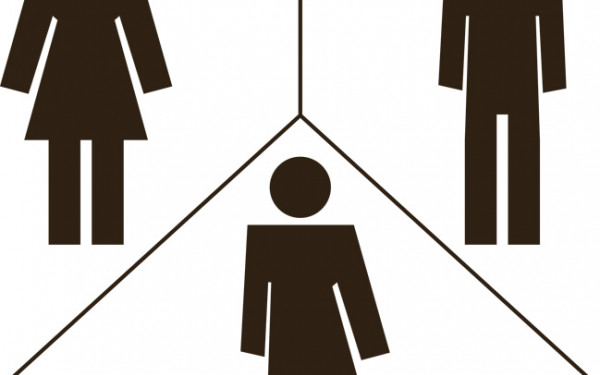That Transsexual Guy
Where Are the Gender-Neutral Bathrooms?
In my last semester at Dawson College, being in an androgynous in-between state got to be too much.
I came out to select classmates and professors as Oliver. I used the men’s bathroom sometimes.
It was dangerous for a few reasons. I wasn’t always perceived as male. I could’ve run into a classmate who only knew me by my birth name, who only knew me as female.
At the same time, I was regularly asked, “Sir, do you realize you’re in the women’s bathroom?” Someone of any gender could have called security to ask why I was in their bathroom.
There is one gender-neutral bathroom in Dawson College. It is specifically for students with disabilities. You need a code to get in.
I asked a friend to come with me to the Student Access Ability centre to get the code. With my permission, they outed me to the secretary, who demanded to know why I, as an able-bodied person, wanted to use this bathroom—probably rightly so.
I blushed and felt humiliated. I was given the code. I used the bathroom for the rest of the semester, despite the fact that most of my classes were on the fourth floor and the bathroom was on the main floor. I never had a problem from other students.
It was inappropriate for me to be using a bathroom utilized by students with disabilities, but there was nowhere else for me to go.
Coming out to my classmates was something I was not ready for at the time (nor should I feel obligated to). Not coming out meant being the subject of stares, double-takes and awkward questions every time I went to the women’s bathrooms. Thankfully, I experienced no violence.
Concordia has around 100, often unmarked, gender-neutral bathrooms that are frequently inaccessible to students with disabilities. Some are locked, staff-only or under renovation.
At the beginning of last summer, a volunteer from the 2110 Centre for Gender Advocacy and I found every single gender-neutral bathroom on the downtown campus.
2110 has that list, available upon request. It is also available online at centre2110.org under the heading “Trans Health Advocacy” in the Campaigns and Projects section. The centre is currently looking for someone to make the list more accessible and user-friendly.
“My dream would be to have an interactive map where the gender-neutral bathrooms are,” said the 2110 Centre’s Trans Health Advocacy and Peer Support Coordinator Gabrielle Bouchard. “Making the ones on the list available and easy to recognize would be the first step, because I don’t know if the ones already there are truly available.”
The last articles in The Link specifically about gender-neutral bathrooms date back to 2010. Former Editor-in-Chief Laura Beeston wrote about “an anonymous guerilla sign maker” who put up handmade gender-neutralizing signs on twelve single-stall bathrooms.
The Link’s current Copy Editor, Alex Manley, wrote an editorial on Oct. 26, 2010, which reminded Concordia administration that since 2005, Queer Concordia has been calling for gender-neutral bathrooms.
On Feb. 15, 2012, ConU spokesperson Chris Mota announced that students could have their preferred names on all university records—except their transcripts.
As of this fall, transsexual, transgender and gender-variant students are not being outed by their professors when being called at attendance, or when required to show their ID cards to authority figures.
As someone who has had to deal with accidental outing, and having to email or speak to professors about preferred names and pronouns, this is a huge relief.
The university has done well.
However, not having gender-neutral bathrooms continues to add to an unsafe campus for transsexual, transgender and gender-variant students.
As Manley wrote, “Bathrooms have a long history of being sites of struggles against discrimination, as racial minorities, the disabled and women have historically been kept out of certain spaces under an exclusionary rationale.”
This is not a new issue.
The university promised that the bathrooms with gender-neutral signage would be ready by fall 2008.
Where are these friendlier bathrooms?







1_600_375_90_s_c1.jpg)